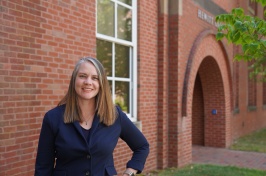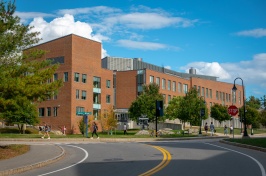The University of New Hampshire, founded in 1866, is a world-class public research university with the feel of a New England liberal arts college. A land, sea, and space-grant university, UNH is the state's flagship public institution, enrolling 13,000 undergraduate and 2,000 graduate students.
UNH Research Finds More Than 80 Percent of N.H. Residents Support Paid Family and Medical Leave
DURHAM, N.H. – Four of every five New Hampshire residents support a paid family and medical leave insurance law for workers who have to take time from work to care for a new child or tend to their own or a family member’s illness, according to new research from the Carsey School of Public Policy at the University of New Hampshire.
“Support for a statewide paid family and medical leave insurance program is widespread in New Hampshire,” said Kristin Smith, a family demographer and research associate professor of sociology.
Support is high among both women and men, with nearly nine in 10 women and three in four men, yet men who are married, employed, have higher education levels or live in higher-income families are the least supportive relative to comparable women.
Smith also found that 69 percent of those surveyed who are employed would be willing to pay $5 per week into a paid family and medical leave insurance program. Willingness to pay into a program varies by political party affiliation. Those affiliated with the Democratic party were more likely to be willing to pay than those affiliated with the Republican party.
Most New Hampshire businesses employ fewer than 10 people and only 10 percent of these provided family care leave in 2011. Among businesses employing 250 or more employees, 30 percent provided family care leave.
“A statewide paid family and medical leave insurance program would level the playing field,” Smith said.
The complete report is available at https://carsey.unh.edu/publication/nh-residents-paid-family-leave. The findings will be shared at a statewide summit on paid family and medical leave insurance Sept. 21, 2016, in Manchester.
The Carsey School of Public Policy is nationally recognized for its research, policy education, and engagement. The school takes on the pressing issues of the twenty-first century, striving for innovative, responsive, and equitable solutions.
The University of New Hampshire, founded in 1866, is a world-class public research university with the feel of a New England liberal arts college. A land, sea, and space-grant university, UNH is the state's flagship public institution, enrolling 13,000 undergraduate and 2,500 graduate students.
Latest News
-
October 8, 2025
-
October 2, 2025
-
September 24, 2025
-
September 15, 2025
-
August 21, 2025














































